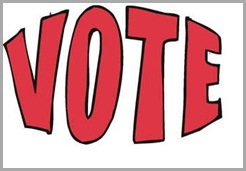I'm running behind the times, way behind. Blame that on stubbornness and an ounce of arrogance. Truth is, I deliberately stay away from any kind of technology that gets anywhere near my ears.
In my last "dream" job, I spent a lot of time on the phone. I was either holding the mouthpiece or had an earplug so I could use both hands and type. That explains why I developed an allergy to phones and related products like the iPod. Once I bought a cell phone thinking that I would need it, but chucked it after less than a month because like a dunderhead, I associated phone and phone-like gadgets as sources of ear infections. That's my fertile imagination at work.
I wanted to tune off and tune out. When clients ask if they could speak to me via telephone, I try to convince them to send me an e-mail instead. When they ask if I'm on Skype, I shrink like a prune. Lots of people would welcome interaction with clients; I lean more towards saving valuable minutes. As a freelance writer and translator, the time I spend on the phone is non-billable. What can be said "in person" can be said via e-mail.
 Now you know why I'm not racing to own an iPod. Still, it's a wonderful testimony to man's genius and sense of innovation. It's a gadget deserving of admiration.
Now you know why I'm not racing to own an iPod. Still, it's a wonderful testimony to man's genius and sense of innovation. It's a gadget deserving of admiration.
Call the iPod your music on the run and your data-to-go. It's your "forever" digital library of songs and video. It has been through at least five generations and has been re-modeled at least 20 different times.
To ward off confusion for future potential owners, the iPod is available in these models (the Apple web site has more information: http://www.apple.com/ipod/compare-ipod-models/).
1. iPod Shuffle - tiny size, fits in your pocket. It tells you what songs are playing.
2. iPod Nano - comes with a video camera and a larger viewing screen
3. iPod Classic - will store pictures, music and videos. Your super entertainment on the go.
4. iPod Touch - games, movies, internet, e-mail. Check it out, what more do you want? Available in 8, 32 and 64 GB. Not to forget - voice control! Just say, check my e-mails, and your iPod suddenly morphs into an efficient secretary!
The latest iPod Touch model starts at US$199.00. That's a steep price to pay, but think...what would 10 CDs, 10 movie passes, and the latest Warlord game cost you at retail stores? And the Apple store is one helluva mega mall of entertainment. Have you been?
| FRENCH | ENGLISH |
| musique numérique | digital music |
| disque dur | hard disk |
| 40 GO (giga-octet) | 40 GB (giga bytes) |
| protection intégrée contre les sautes | built-in skip protection |
| sonothèque ou une bibliothèque musicale | music and video library |
| reproductions d'une qualité parfaite | perfect quality copies |
| formats audio | audio formats |
| calendrier et carnet d'adresses | calendar and address book |
| lecteur de données | data player |
| périphérique de stockage | portable back up device |
| disque dur polyvalent | general purpose hard drive |
| adaptateur | adaptor |







